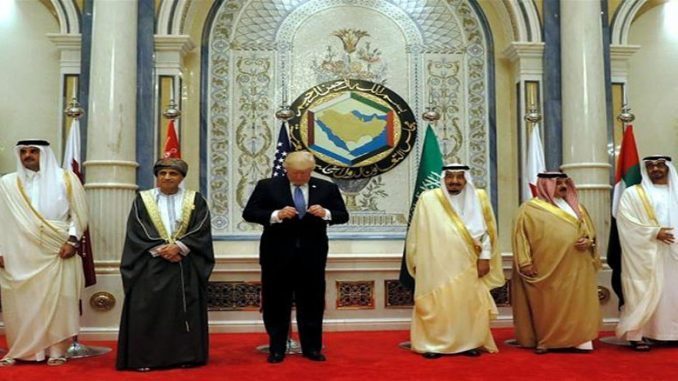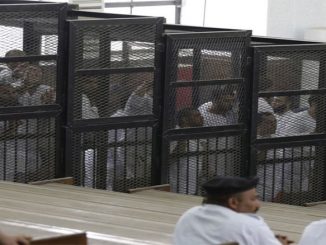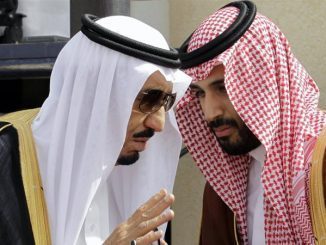
The Trump administration seems to be preparing to circumvent Congress to allow the export to Saudi Arabia and the United Arab Emirates of billions of dollars of munitions that are now on hold, according to current and former American officials and legislators familiar with the plan.
Secretary of State Mike Pompeo and some political appointees in the State Department are pushing for the administration to invoke an emergency provision that would allow President Trump to prevent Congress from halting the sales, worth about $7 billion. The transactions, which include precision-guided munitions and combat aircraft, would infuriate lawmakers in both parties.
They would also further inflame tensions between the United States and Iran, which views Saudi Arabia as its main rival and has been supporting the Houthi rebels in Yemen in their campaign against a Saudi-led military coalition that includes the United Arab Emirates.
American legislators from both parties remain incensed by the Trump administration’s equivocal response to the grisly killing last October by Saudi agents of Jamal Khashoggi, a Washington Post columnist and Virginia resident. They are also frustrated by the administration’s role in supporting the Saudi-led coalition in the Yemen war, a four-year conflict that the United Nations has deemed the world’s worst humanitarian crisis, with thousands of civilians killed and millions suffering from famine.
This spring, both the House and Senate approved bipartisan legislation to cut off military assistance to Saudi Arabia’s war in Yemen using the 1973 War Powers Act, only to see it vetoed in April.
Senator Marco Rubio, a Florida Republican who sits on the Foreign Relations Committee, said that circumventing Congress on a Middle East arms sale would be “a big mistake,” though he added that he would need to see the specifics of such a deal.
“We have a gold standard for that sort of arrangement, and to violate it for Saudi Arabia is going to open the door for it to happen in multiple other places,” he said.
Senator Lindsey Graham, Republican of South Carolina and an outspoken ally of the president, told reporters Thursday that he would “not do business as usual with the Saudis until we have a better reckoning” with the crown prince, Mohammed bin Salman, whom American intelligence agencies consider to be responsible for the killing of Mr. Khashoggi and the Saudi role in the Yemen war.
No other foreign policy issue has created as large a rift between Mr. Trump and Congress, and the move on the arms sales, which could take place within days, would deepen the divide. Mr. Pompeo would oversee the action, and the State Department is bracing for lawmakers to stall confirmations on all State Department nominees if it is implemented. Within the department, veteran Foreign Service officers have strongly opposed Mr. Pompeo’s position.
The proposal emerged publicly on Wednesday when Senator Christopher S. Murphy, Democrat of Connecticut, criticized it on Twitter.
Members of Congress ordinarily are given a review period during which they can pass legislation modifying or prohibiting a prospective arms sale. But a provision in the Arms Export Control Act allows the president to bypass congressional review if he deems “an emergency exists which requires the proposed sale in the national security interest of the United States.”
“It sets an incredibly dangerous precedent that future presidents can use to sell weapons without a check from Congress,” Mr. Murphy said in an interview on Thursday. “We have the constitutional duty to declare war and the responsibility to oversee arm sales that contravene our national security interests. If we don’t stand up to this abuse of authority, we will permanently box ourselves out of deciding who we should sell weapons to.”
Senator Robert Menendez of New Jersey, the top Democrat on the Foreign Relations Committee, warned that he would “pursue all appropriate legislative and other means to nullify these and any planned ongoing sales should the administration move forward in this manner.”
Mr. Menendez withheld his support last summer for a Trump administration plan to sell precision-guided munitions to Saudi Arabia and the United Arab Emirates, effectively blocking it.
Mr. Pompeo’s emergency declaration would be based on what he says is a heightened threat against American interests in the region from Iran. Mr. Pompeo took the extraordinary step this month of ordering a withdrawal of almost all American diplomats from the Baghdad embassy and Erbil consulate in Iraq. European allies and Iraqi leaders have expressed skepticism about American alarm over Iran.
Asked about the proposal, Morgan Ortagus, the main State Department spokeswoman, said, “We do not comment to confirm or deny potential arms sales or transfers until Congress is formally notified.”
Tensions between the United States and Iran have soared since May 5, when John R. Bolton, the national security adviser and an Iran hawk, announced that the White House was ordering an aircraft carrier strike group and bombers to speed up their movement to the Persian Gulf. In the days afterward, American officials told reporters that they had gotten several strands of intelligence about potential attacks on American troops or diplomats by Iranian forces or Arab militias with Iranian ties.
Mr. Bolton issued an expansive warning against Iran, saying that “any attack on United States interests or on those of our allies will be met with unrelenting force.” Critics of the escalation, which was supported by Mr. Pompeo, said the Trump administration had provoked Iran by withdrawing from a 2015 nuclear containment deal, reimposing harsh sanctions and designating an arm of the Iranian military as a terrorist organization.
Tensions in the Persian Gulf also rose this month after four oil tankers were attacked with explosives. Two of the tankers are from Saudi Arabia, one is from the United Arab Emirates and the fourth is from Norway; the countries have not revealed the results of investigations, but Mr. Pompeo said this week, without presenting evidence, that it was “quite possible that Iran was behind these.”
On Thursday, the acting defense secretary, Patrick Shanahan, said Mr. Trump might send more troops to the Middle East because of the tensions with Iran.
“The U.S. and Iran are entering into an escalatory dynamic from which it will become increasingly difficult to escape,” said Robert Malley, the president of the International Crisis Group, a nonprofit that tries to defuse conflict.



